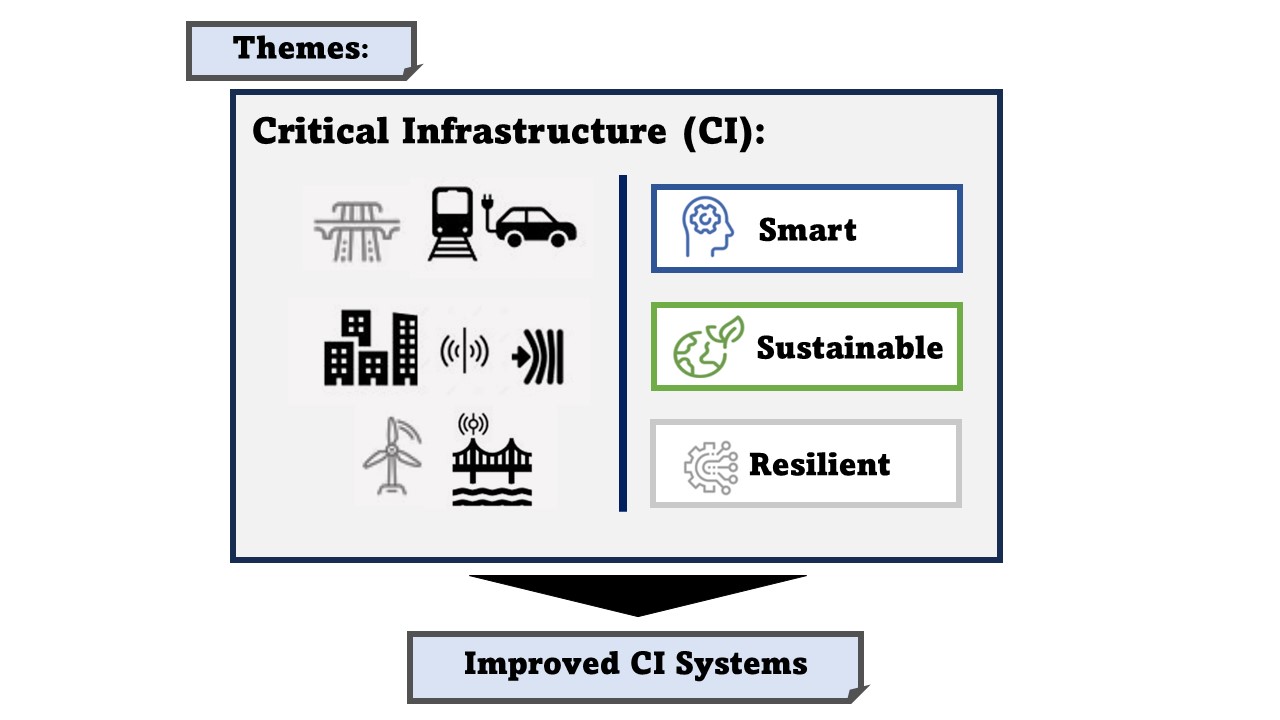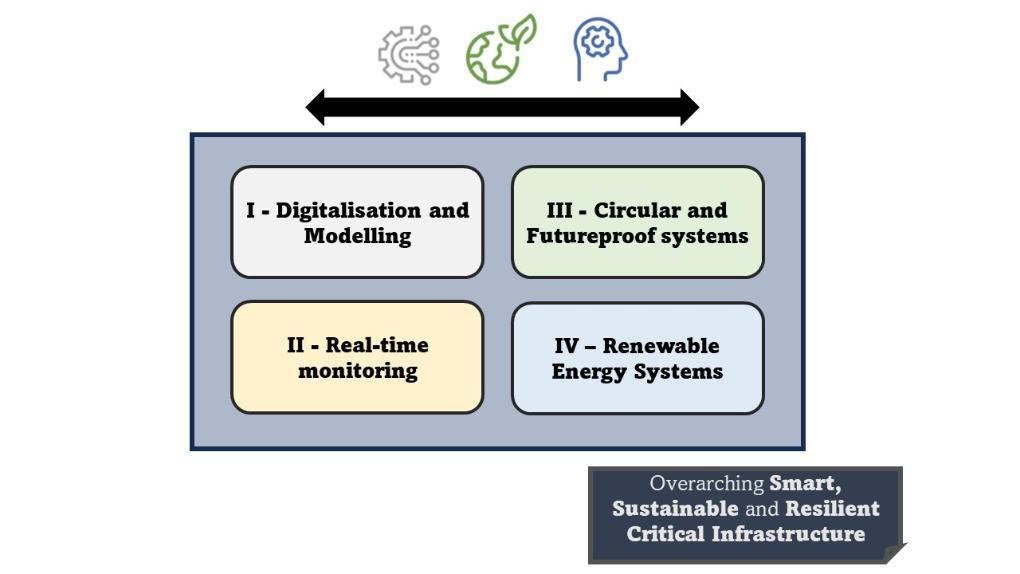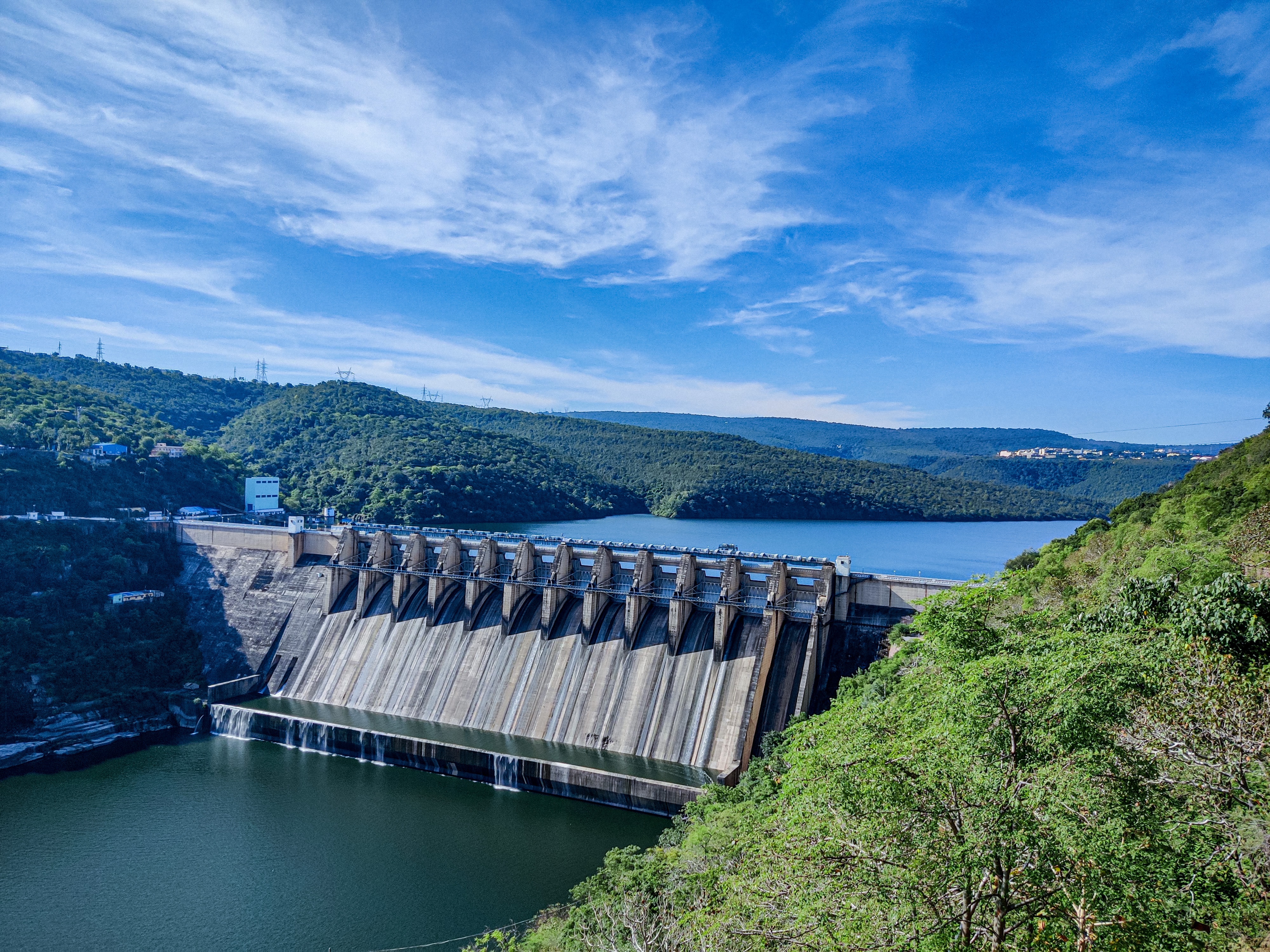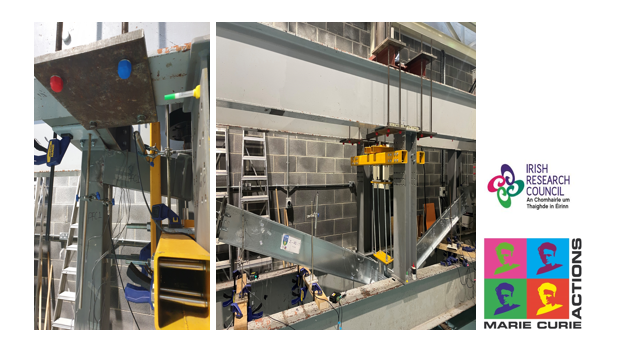
Overarching CCIR
The CCIR is structured in three main themes that aim to improve Critical Infrastructures through research on:
- Resilient Infrastructure
- Sustainable Infrastructure
- Smart and Intelligent Infrastructure
Through these three research themes tailored to enhance critical infrastructure performance, making it resilient, but while doing so, including principles of sustainability, and capitalising on the new paradigm of smart systems, the CCIR explores research topics transversal to all these, such as:
- Digitalisation and Modelling of systems;
- Real-time system monitoring;
- Circular and Futureproofing of systems;
- Renewable energy supported infrastructure;
to deliver its ambition for critical infrastructure that is resilient, sustainable, and smart.
I. Digitalization and modeling are expected to revolutionize the way critical infrastructure systems are planned, designed, and managed. Digitalization involves the transformation of physical assets and processes into digital representations, creating virtual twins of real-world infrastructure. Data can now be collected and integrated into digital models. These models, often using advanced software, enable engineers and decision-makers to visualize, simulate, and analyze complex infrastructure scenarios in a virtual environment. Digital models provide valuable insights into system behavior, interdependencies, and potential vulnerabilities, allowing for data-driven decision-making, risk assessment, and optimization of infrastructure operations. With it, critical infrastructure stakeholders can enhance performance, identify cost-effective solutions, and ensure the resilience and sustainability of essential systems in the face of evolving challenges and uncertainties.
II. Research on Real-time System monitoring refers to the continuous and instantaneous observation, data collection, and analysis of critical processes, systems, or assets as events unfold. Unlike traditional periodic monitoring, real-time monitoring provides immediate insights into the current state of the system, enabling swift response and decision-making. In this approach, sensors, cameras, or other monitoring devices are deployed to capture data in real-time, transmitting it to a centralized system or control center. This data is then analyzed promptly, often using advanced data analytics and visualization tools, to detect anomalies, identify trends, or trigger automated actions in response to predetermined thresholds or events. Real-time monitoring is invaluable for critical infrastructure, as it allows operators and decision-makers to proactively address emerging issues, respond to emergencies promptly, and optimize the efficiency of these vital systems.
III. Research on Circular and future-proof critical infrastructure represents a visionary approach to tackling the pressing challenges faced by these. As the world transitions towards a low-carbon economy, critical infrastructure must embrace sustainable practices and technologies that significantly reduce their environmental impact; such as new materials and more efficient construction and management practices. Moreover, future-proofing critical infrastructure entails designing and planning with flexibility and adaptability in mind, considering potential future-related risks, technological advancements, and evolving societal needs. Future-proofing infrastructure is resilient, capable of accommodating changing conditions and demands, and has built-in redundancies to withstand unexpected disruptions.
IV. Renewable energy will play a pivotal role in ensuring resilient and sustainable critical infrastructure systems. As traditional energy sources face increasing challenges such as resource depletion and environmental concerns, the transition to renewable energy sources, such as solar, wind, hydro, and geothermal, has become key. Integrating renewable energy into critical infrastructure not only reduces greenhouse gas emissions and environmental impact but also mitigates dependency on finite resources. Renewable energy also offers decentralized and distributed power generation options, which may protect critical infrastructure against centralized power failures. With it critical infrastructures can become more self-reliant, adaptable, and better equipped to ensure continuous operations and contribute to the overall sustainability and security of the society.
These merge under the three main overarching themes of CCIR to deliver the future of critical infrastructures:












